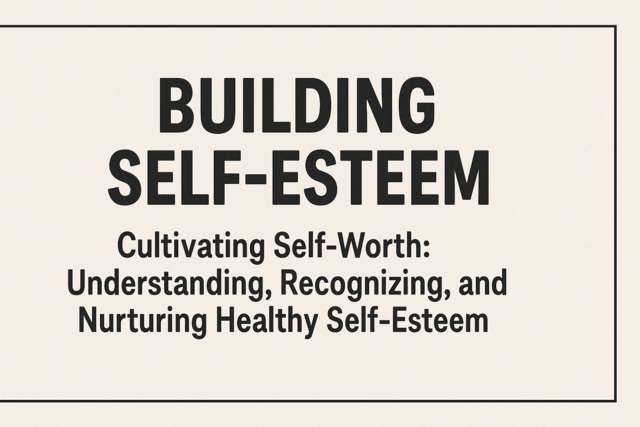A. Socialization and Personal Development: Overview
The term "socialization" is commonly used in association with an infant's development process and specifically refers to the infant's growing awareness of and interaction with other human beings.
The individual need not be an infant in order to experience socialization, however. The term can be used to explain how an orphan becomes socialized upon leaving the confines of the orphanage, the only place he or she has known; or the experiences of a prisoner who is released from jail and forced to re-enter society and redevelop ties with people; or how a small-town individual moves to a large urban area and learns how to socialize within a new environment.
Along with those three examples, there are many other instances outside of an infant becoming aware that qualify as part of the socialization processes. Primarily, though, it is the infant's development of a sense of self and, thus, a separation from others that leads to a consciousness of others. This then is the example sociologists commonly cite for explaining how socialization manifests itself, as it demonstrates the precise correlation of all life cycle phases from birth to death and allows for explanations as to the varying development theories that occur at each stage.
Child development theories. While a number of different child development theories abound, only a small percentage are based upon social development constructs. For example, under the heading of psychoanalytic theories, it is the contention of Sigmund Freud, the preeminent scholar, that childhood events and experiences could, in nearly all situations, be attributed to inherent mental disorders as opposed to health behaviors.
Continuity versus discontinuity. Within the area of life cycle development, another controversial subject is that of continuity. In this area, the predominant question is whether change, over time, occurs smoothly or through a series of predetermined steps.
B. Three Theoretical Discussions
In an attempt to answer this baffling question, three theoretical discussions have been proposed:
1. Psychoanalytic theories influenced by the work of Sigmund Freud stress the importance of the unconscious mind and childhood experiences. Freud contributed to a developmental theory from his assertion that development occurs through a series of psychosexual stages.
Theorist Erik Erikson expanded upon Freud's ideas by proposing the Stage Theory of Psychosocial Development. Erikson's theory focused on conflicts that arise at different stages of development and, unlike Freud's theory, Erikson believed that development occurred as one went through his or her lifespan, as opposed to being an innate condition as Freud believed.
2. Where Freud stressed the importance of childhood events and experiences connected to the psychosexual stages described as oral, anal, phallic, latency, and genital periods, theorist Erik Erikson developed his theory based upon the notion that each stage of development was interlinked with the overcoming of a conflict. Success or failure in dealing with a particular conflict or conflicts in general were capable of severely impacting one's overall development and ultimate functioning.
Grounded in the ideas of such theorists as Watson, Pavlov, and Skinner, behavioral theories stress development based upon an individuals' interaction with the environment and how these interactions influence behavior. These theories deal only with observable behaviors and their outgrowth results in development that is a result of rewards, punishments, stimuli, and reinforcement.
3. From a sociological perspective, learning theories focus on the impact the environment has on behavior. Notable learning processes include, classical conditioning, operant conditioning, and social learning, each of which is formulated as a result of the interaction between the individual and the environment.
In contrast, cognitive theories focus on the development of mental processes, skills, and abilities. One of the most well-known cognitive theories is that of Jean Piaget. In his theory of cognitive development, he proposed the notion that children think differently from adults and, thus, he put forth the idea that children play an instrumental role in gaining insight into how people work in the world.
C. Social Development Theories
In the social development of children theory, sociologist theorist John Bowlby was focused on the idea that early relationships with caregivers played a major role in the development of the child and that these relationships continued to influence his or her social relationships throughout life. This theory is classified as a social development theory as it is based upon relationships, the child's involvement with the caregiver, and the caregiver's involvement with the child.
An additional social development theory is one that G.H. Mead put forth. He presented the notion that the child achieves an understanding of being a separate person through his or her exchanges with others in social settings.
These types of situations tend to occur during playtime in which children often imitate the actions of adults. Later on in their development, they play games in which they take on the roles of other playmates, as well as adult persons. Eventually, the child learns to more fully understand the concept of others both in terms of basic core values and cultural morays, or ethics.
|
Throughout the centuries, there has been a wide range of pivotal issues or debates that have come to the forefront of the public's attention:
-
Is development due more to genetics or to the environment? This is the nurture vs. nature debate.
-
Does development occur slowly and smoothly, or do changes happen in stages? This debate focuses on continuity vs. discontinuity.
-
Do occurrences during early childhood have the greatest impact on development, or do the later ones prove to be equally as important? This debates weighs the importance of early experience vs. later experience.
|
D. Development Debates
One of the longest ongoing debates in the world of both philosophy and sociology, not to mention psychology and environmentalism, is that of nature versus nurture. Which plays a more pivotal role in laying the groundwork for an individual's future development, genetic inheritance or the environment?
During the early centuries, famous philosophers the likes of Plato and Descartes supported the notion of genetics making the stronger contribution of the two, whereas other philosophers, including John Locke, believed in the notion of tabula rasa or blank slate. This term refers to the belief that the mind begins as an empty vessel that gets filled through life experiences and interactions with others.
Today, the consensus is that both genetics and the environment contribute to the evolutionary process of one's physiological and character traits. While some aspects of development are intrinsically biological, such as puberty, its onset can be triggered by environmental factors like diet and nutrition. As you can see, the sociological perspective does not always weigh in with respect to major debates. In the nature versus nurture dialogue, the sociologist view tends to incorporate what is known technically as "genotype-environment interactions." This refers to the fact that genetic factors do not automatically determine an offspring's character traits. Though one's characteristics may be established by the parental units' combination of genetic material, a fluid range exists in which the environment can enter in and further shape them.
| Early Experience versus Later Life Experience |
Another time-tested discussion within the area of developmental psychology involves the significance of early experiences versus those that occur later in life. The question often asked is whether we are more greatly affected by childhood events or do they play an equal role in shaping our lives as those events that occur in adulthood?
While there is no one right answer (hence the ongoing debate), the thinking tends to be linked to the type of theorist drawing the conclusion. For instance, psychoanalytic theorists tend to emphasize early childhood events as setting the course for the rest of an individual's life. Freud was such a proponent of this idea that he went so far as to say that a child's personality is nearly 100 percent completely formed by the age of 5. If this were the case, one who suffered an abusive or deprived childhood may never be able to adjust or develop normally.
Yet, sociologists and other types of theorists have found the claim that childhood events take precedence over all other events to be stifling and, through the facilitation of numerous studies, to be not substantiated.
Interviewing persons who suffered from miserable childhoods but yet have gone on to become well-adjusted adults, sociologists discovered that other factors and life experiences beyond those that occurred during childhood also played sizable roles in the formation of the persons' lives.
|
Abnormal Behavior versus Individual Differences
|
Where parents or caregivers are concerned, one of the most pressing concerns is whether or not their child is developing according to normal standards.
Out of years of study, social researchers, including both medical and sociology professionals, produced what are known as developmental guidelines charting the age at which specific skills and abilities typically emerge. Note: Whereas developmental theories in the past focused upon behavior deficits; they now tend to highlight individual differences in development.
The important thing for parents and caregivers to keep in mind is that these guidelines are merely the norm. Should a child reach a particular level sooner or later than the majority of children, this does not necessarily indicate a problem or a disability.
Yet, this grain-of-salt thinking does not relate to psychoanalysis, which considers a child who is outside of the normal development trajectory as falling under the behavioral deficit category.
In contrast, learning or sociological theories bring the environment into the equation, meaning that they consider how the child's economic upbringing or one-parent status may have played a role in that individual's development.
Incorporating a bit of both of the psychoanalyst's and the sociologist's perspectives, psychologists weigh societal norms against individuals' differences when attempting to discern a child's developmental stage.






























